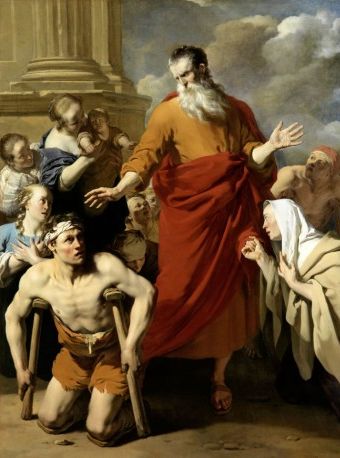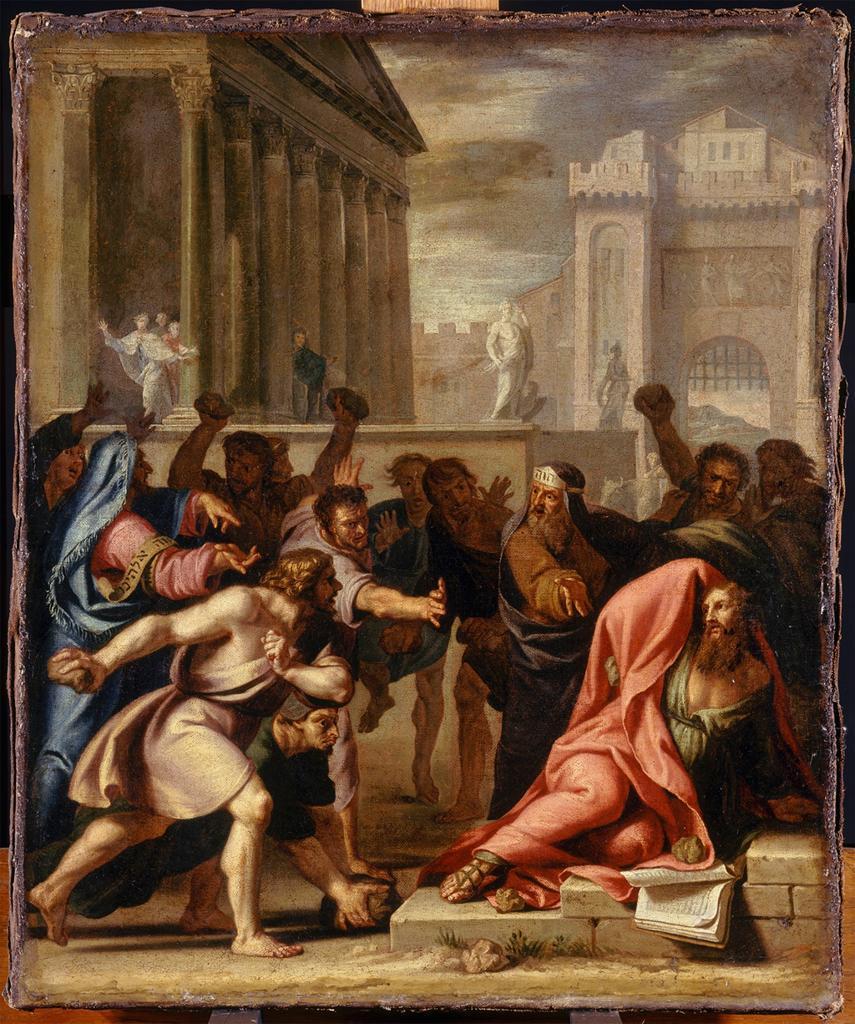In this series, we're using the Acts of the Apostles to discuss the growth of the earlier church from its birth in the city of Jerusalem to Paul’s arrival in Rome. During our time together, we’ll look at the following:
- Session 1 - Preparing for the Journey (Acts 1:1-2)
- Session 2 - Transition (Acts 1:3-26)
- Session 3 - Birth (Acts 2:1-47)
- Session 4 - The Work Begins (Acts 3:1-26)
- Session 5 - When Faced with Opposition (Acts 4:1-26)
- Session 6 - But... (Acts 5:1-42)
- Session 7 - Problem Solved (Acts 6:1-15)
- Session 8 - When Something Bad Happens (Acts 7:1-60)
- Session 9 - Step Two (Acts 8:1-40)
- Session 10 - Saul (Acts 9:1-43)
- Session 11 - Clean People (Acts 10:1-48)
- Session 12 - Phase Three Begins (Acts 11:1-30)
- Session 13 - Even Above Kings (Acts 12:1-25)
- Session 14 - The New Kid Takes the Stage (Acts 13:1-52)
- Session 15 - Approaching a New Community (Acts 14:1-28)
- Session 16 - Issue Resolved (Acts 15:1-41)
- Session 17 - A New World (Acts 16:1-40)
- Session 18 - Know Your Audience (Acts 17:1-34)
- Session 19 - The Big Time (Acts 18:1-28)
- Session 20 - Christ and Culture (Acts 19:1-41)
- Session 21 - Farewell (Acts 20:1-38)
- Session 22 - Jerusalem (Acts 21:1-40)
- Session 23 - A Personal Testimony (Acts 22:1-30)
- Session 24 - The Plot Thickens (Acts 23:1-35)
- Session 25 - The Way Continues (Acts 24:1-27)
- Session 26 - Different Singer, Same Song (Acts 25:1-27)
- Session 27 - A Message to God’s People (Acts 26:1-32)
- Session 28 - Will He Make It (Acts 27:1-44)
- Session 29 - Without Hindrance (Acts 28:1-31)
In our fifteenth session, we looked at Acts 14:1-28. The discussion and passage are below:
Acts 14:1-28 [New Revised Standard Version]
The same thing occurred in Iconium, where Paul and Barnabas went into the Jewish synagogue and spoke in such a way that a great number of both Jews and Greeks became believers. But the unbelieving Jews stirred up the Gentiles and poisoned their minds against the brothers. So they remained for a long time, speaking boldly for the Lord, who testified to the word of his grace by granting signs and wonders to be done through them. But the residents of the city were divided; some sided with the Jews, and some with the apostles. And when an attempt was made by both Gentiles and Jews, with their rulers, to mistreat them and to stone them, the apostles learned of it and fled to Lystra and Derbe, cities of Lycaonia, and to the surrounding country; and there they continued proclaiming the good news.
In Lystra there was a man sitting who could not use his feet and had never walked, for he had been crippled from birth. He listened to Paul as he was speaking. And Paul, looking at him intently and seeing that he had faith to be healed, said in a loud voice, “Stand upright on your feet.” And the man sprang up and began to walk. When the crowds saw what Paul had done, they shouted in the Lycaonian language, “The gods have come down to us in human form!” Barnabas they called Zeus, and Paul they called Hermes, because he was the chief speaker. The priest of Zeus, whose temple was just outside the city, brought oxen and garlands to the gates; he and the crowds wanted to offer sacrifice. When the apostles Barnabas and Paul heard of it, they tore their clothes and rushed out into the crowd, shouting, “Friends, why are you doing this? We are mortals just like you, and we bring you good news, that you should turn from these worthless things to the living God, who made the heaven and the earth and the sea and all that is in them. In past generations he allowed all the nations to follow their own ways; yet he has not left himself without a witness in doing good—giving you rains from heaven and fruitful seasons, and filling you with food and your hearts with joy.” Even with these words, they scarcely restrained the crowds from offering sacrifice to them.
But Jews came there from Antioch and Iconium and won over the crowds. Then they stoned Paul and dragged him out of the city, supposing that he was dead. But when the disciples surrounded him, he got up and went into the city. The next day he went on with Barnabas to Derbe. After they had proclaimed the good news to that city and had made many disciples, they returned to Lystra, then on to Iconium and Antioch. There they strengthened the souls of the disciples and encouraged them to continue in the faith, saying, “It is through many persecutions that we must enter the kingdom of God.” And after they had appointed elders for them in each church, with prayer and fasting they entrusted them to the Lord in whom they had come to believe. Then they passed through Pisidia and came to Pamphylia. When they had spoken the word in Perga, they went down to Attalia. From there they sailed back to Antioch, where they had been commended to the grace of God for the work that they had completed. When they arrived, they called the church together and related all that God had done with them, and how he had opened a door of faith for the Gentiles. And they stayed there with the disciples for some time.





No comments:
Post a Comment